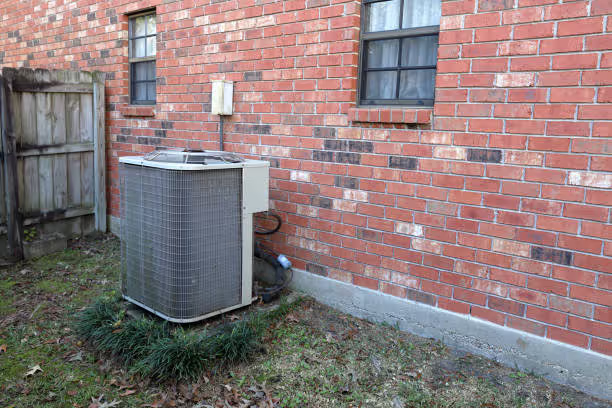Mini Split Replacement in Riverhead, NY
Replacing a failing or outdated mini split in Riverhead, NY is a decision that affects comfort, energy use, and long-term costs. Whether your existing ductless unit is struggling to cool humid summer nights, fighting corrosion from coastal air, or simply reaching the end of its service life, a properly planned mini split replacement restores reliable performance while delivering better efficiency and zoning control for Riverhead homes.

Why Riverhead homeowners replace mini splits
Riverhead experiences hot, humid summers and moderately cold winters. That seasonal swing, plus proximity to salt air along the Peconic Bay and Long Island Sound, accelerates wear on outdoor condensing units and can reveal underlying inefficiencies. Common reasons Riverhead homeowners choose replacement over ongoing repair include:
- Repeated refrigerant leaks or compressor failures
- Rising energy bills despite repairs and tune-ups
- Poor capacity for current living patterns (new additions, finished basements, remote work spaces)
- Obsolete refrigerants or nonrepairable components
- Corrosion or physical damage to outdoor units from coastal conditions
Common signs that replacement is needed
Look for these clear indicators that a mini split replacement is the appropriate next step rather than another repair:
- Age over 10–12 years with frequent breakdowns
- Compressor not starting or short cycling after repairs
- Significant capacity loss: rooms never reach set temperatures
- Repeated refrigerant leaks or systems using phased-out refrigerants
- Excessive noise or vibration even after troubleshooting
- Rust, corrosion, or physical damage to the outdoor condensing unit
- Inefficient performance with notably higher energy bills compared to similar homes
These symptoms point to either failing core components or an undersized/inefficient system — situations where replacement provides better value.
Choosing a higher-efficiency replacement unit
When selecting a replacement mini split for a Riverhead home, prioritize efficiency, durability, and proper sizing. Key considerations:
- SEER and HSPF ratings: Higher SEER (cooling) and HSPF (heating) numbers reduce utility costs, especially valuable during humid summers and shoulder seasons.
- Inverter-driven compressors: Offer better temperature control and lower electrical draw than fixed-speed units.
- Corrosion-resistant coatings and materials: Important for homes near coastal areas to extend outdoor unit life.
- Right-sized capacity: A professional load calculation (Manual J) ensures the system matches your living space and insulation levels — oversizing wastes energy, undersizing leaves you uncomfortable.
- Multi-zone vs single-zone: For homes with different heating and cooling needs in separate rooms, multi-zone systems provide efficient, independent control.
- Improved filtration and IAQ features: Higher-end units can improve indoor air quality — valuable in humid climates that promote allergens and mold.
Benefits of upgrading to a modern mini split
Upgrading delivers tangible benefits that go beyond simply fixing a broken unit:
- Lower energy bills: Modern units can cut electricity use substantially, especially when switching from very old models.
- Improved comfort: Better temperature control, reduced humidity, and quieter operation.
- Enhanced zoning: Independently control rooms to reduce wasted cooling or heating.
- Extended lifespan and reliability: New compressors, electronics, and warranties reduce emergency repairs.
- Environmental benefits: More efficient refrigerants and higher efficiency reduce carbon footprint.
These gains are particularly meaningful in Riverhead, where summer humidity and fluctuating shoulder seasons make efficient, responsive systems valuable year-round.
Removal and responsible disposal
Proper removal of old equipment is part of a professional replacement:
- Safe recovery of refrigerant in compliance with federal and state regulations
- Disconnection and disposal of electrical and refrigerant lines
- Transportation and recycling or disposal of outdoor and indoor units per local rules
- Site cleanup and testing of the new system to ensure safe operation
Disposal practices are important in Suffolk County; many older units contain refrigerants and materials that must be handled by certified technicians.
Rebates and financing options
Several incentive paths often apply to mini split replacements:
- Utility and state rebates: New York and local utilities periodically offer rebates for high-efficiency heat pumps and mini splits. Some programs list incentives by efficiency tier or by system capacity (for example, rebates calculated per ton).
- Federal tax credits: Energy-efficiency tax incentives may be available for qualifying heat pump installations and high-efficiency equipment.
- Manufacturer or retailer promotions: Seasonal offers and rebates may reduce upfront cost.
- Financing plans: Options range from low-interest loans to interest-free short-term financing designed to spread replacement costs.
Eligibility rules and incentive amounts change frequently. When planning a replacement, verify current programs, required documentation, and whether pre-approval or specific installer certifications are required.
Typical project timeline for replacement
A straightforward mini split replacement typically follows these steps and timelines:
- Initial assessment and load calculation (same day or within a few days)
- Equipment selection and procurement (several days to a few weeks depending on inventory)
- Removal of old unit and installation of new indoor and outdoor units (1 to 2 days for most single-zone jobs)
- Refrigerant charging, electrical hook-up, and system testing (same day as installation)
- Final walkthrough and instruction on operation (end of installation day)
Complex multi-zone installs, structural modifications, or permitting requirements can extend timelines. Planning installations outside peak summer windows often improves scheduling flexibility.
How replacement differs from repair
Understanding the difference helps homeowners make a cost-effective decision:
- Repair addresses specific failures and is appropriate when the system is otherwise healthy, under warranty, or recently installed.
- Replacement is more cost-effective when failures are repeated, the core components (compressor, coils) are failing, the system is old, or efficiency is poor. Replacement reduces ongoing operational and repair costs and delivers new performance and warranties.
If recurring issues, declining efficiency, or aging equipment are present, replacement typically offers better long-term value.
Maintenance and maximizing your investment
Post-replacement maintenance preserves efficiency and reliability:
- Regular filter cleaning or replacement
- Annual or biannual service and refrigerant checks
- Outdoor unit clearance and corrosion inspections, especially after coastal storms
- Proper operation habits: use zoning and fan settings to reduce unnecessary runtime
A planned maintenance schedule prolongs equipment life and maintains manufacturer warranty requirements.
ConclusionMini split replacement in Riverhead, NY is a strategic upgrade for homeowners dealing with age-related failures, rising energy costs, or comfort issues tied to humidity and coastal exposure. A correctly sized, higher-efficiency mini split delivers quieter operation, better zoning, and measurable energy savings — and when paired with available rebates and responsible disposal practices, replacement often becomes the smart, long-term solution for Riverhead homes.
Customer Testimonials
Hear directly from homeowners who trust Bobby O’s HVAC Inc. for fast response times, honest service, and lasting comfort.











